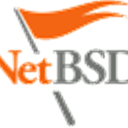Exploring the Best DragonFly BSD Alternatives for Your Computing Needs
DragonFly BSD is a powerful and unique operating system, stemming from the same UNIX ideals as other BSD-derived systems and Linux. It offers a distinct path for BSD development, diverging from FreeBSD, NetBSD, and OpenBSD. However, for various reasons – perhaps specific feature requirements, community size, or a desire for a different developmental philosophy – users often seek a reliable DragonFly BSD alternative. This article will guide you through some of the top contenders that can meet your diverse computing demands.
Top DragonFly BSD Alternatives
Whether you're looking for enhanced security, a more user-friendly desktop experience, or a highly portable system, there's an alternative to DragonFly BSD that will fit your specific needs. Here's a curated list of operating systems that stand out.

FreeBSD
FreeBSD is an advanced operating system renowned for its stability, performance, and robust feature set. As a free, open-source, BSD-licensed, and self-hosted platform, it's a direct descendant of the original BSD, making it a natural DragonFly BSD alternative for those seeking a similar UNIX-like environment. Its features include ARM support, a comprehensive package control system, and a strong community, making it suitable for servers, desktops, and embedded systems alike.

OpenBSD
The OpenBSD project is widely recognized for its unwavering commitment to security and correctness. This free, open-source, multi-platform 4.4BSD-based UNIX-like operating system emphasizes proactive security, making it an excellent DragonFly BSD alternative for users prioritizing data protection and privacy. Its features include being ad-free, highly customizable, FOSS (Free and Open Source Software), and designed with no tracking, offering a secure and private computing experience.

TrueOS
TrueOS, formerly known as PC-BSD, is a user-friendly desktop operating system based on FreeBSD. It focuses on providing a stable and secure desktop experience, leveraging FreeBSD's robust server capabilities. As a free, open-source, BSD-based platform, TrueOS offers a rolling release model and a familiar UNIX-like environment, making it an appealing DragonFly BSD alternative for those who prefer a more desktop-oriented system without sacrificing the underlying BSD principles.

GhostBSD
GhostBSD is another user-friendly desktop operating system built upon FreeBSD, aiming to comply with the Single Unix Specification. It provides a complete desktop environment out-of-the-box, making it an excellent DragonFly BSD alternative for users who want to dive into a BSD system without extensive configuration. Being free and open-source, GhostBSD is perfect for those seeking a straightforward and intuitive desktop experience based on the reliable FreeBSD core.

NetBSD
NetBSD stands out for its exceptional portability, running on a vast array of hardware platforms, from embedded systems to large-scale servers. As a free, fast, secure, and highly portable Unix-like Open Source operating system, NetBSD is a versatile DragonFly BSD alternative. Its emphasis on clean code and broad hardware support makes it an ideal choice for developers and users working with diverse or older hardware, ensuring a consistent UNIX-like experience across all supported architectures.

CRUX Linux
While not a BSD, CRUX Linux offers a minimalistic and lightweight approach, making it an interesting DragonFly BSD alternative for experienced Linux users who appreciate a lean, Unix-like environment. This free and open-source Linux distribution for the x86-64 architecture focuses on simplicity and a 'BSD-style' ports system, appealing to those who prefer to build their system from the ground up and have fine-grained control over their operating environment.

MINIX 3
MINIX 3 is a free, open-source operating system designed with a primary focus on being highly reliable, flexible, and secure, featuring a microkernel architecture. Available across Mac, Windows, Linux, and BSD platforms, and capable of self-hosting, it's a unique DragonFly BSD alternative for those interested in exploring an operating system built for robustness and stability, particularly in embedded or educational contexts. Its Unix-like API makes it accessible for developers familiar with other POSIX-compliant systems.

MidnightBSD
MidnightBSD is a newer BSD-derived operating system specifically developed with desktop users in mind. It's a free, open-source, and self-hosted platform that provides a complete suite of software for daily tasks, including email and web browsing. For those seeking a fresh take on a desktop-focused BSD that feels familiar to Linux users, MidnightBSD serves as a compelling DragonFly BSD alternative, offering a user-friendly and functional UNIX-like experience.

NomadBSD
NomadBSD is a persistent live system based on FreeBSD, designed for USB flash drives. With automatic hardware detection and setup, it offers a portable and readily usable BSD experience. As a free, open-source, BSD-based platform, NomadBSD is an excellent DragonFly BSD alternative for users who need a powerful, persistent operating system they can carry in their pocket, ideal for system recovery, demonstrations, or simply having a consistent environment on the go.

MirOS
MirOS BSD is a secure operating system from the BSD family, built for 32-bit i386 and SPARC systems, primarily based on OpenBSD and some NetBSD code. As a free and open-source BSD, it offers a robust and secure environment for specific architectures. For users seeking a highly secure and classic BSD experience, MirOS can serve as a compelling DragonFly BSD alternative, especially if working with 32-bit systems and valuing a strong security posture.
Ultimately, the best DragonFly BSD alternative depends on your individual priorities, whether they be security, ease of use, portability, or performance. Each of these operating systems offers a unique set of advantages, inviting you to explore and find the perfect fit for your specific computing needs and preferences.